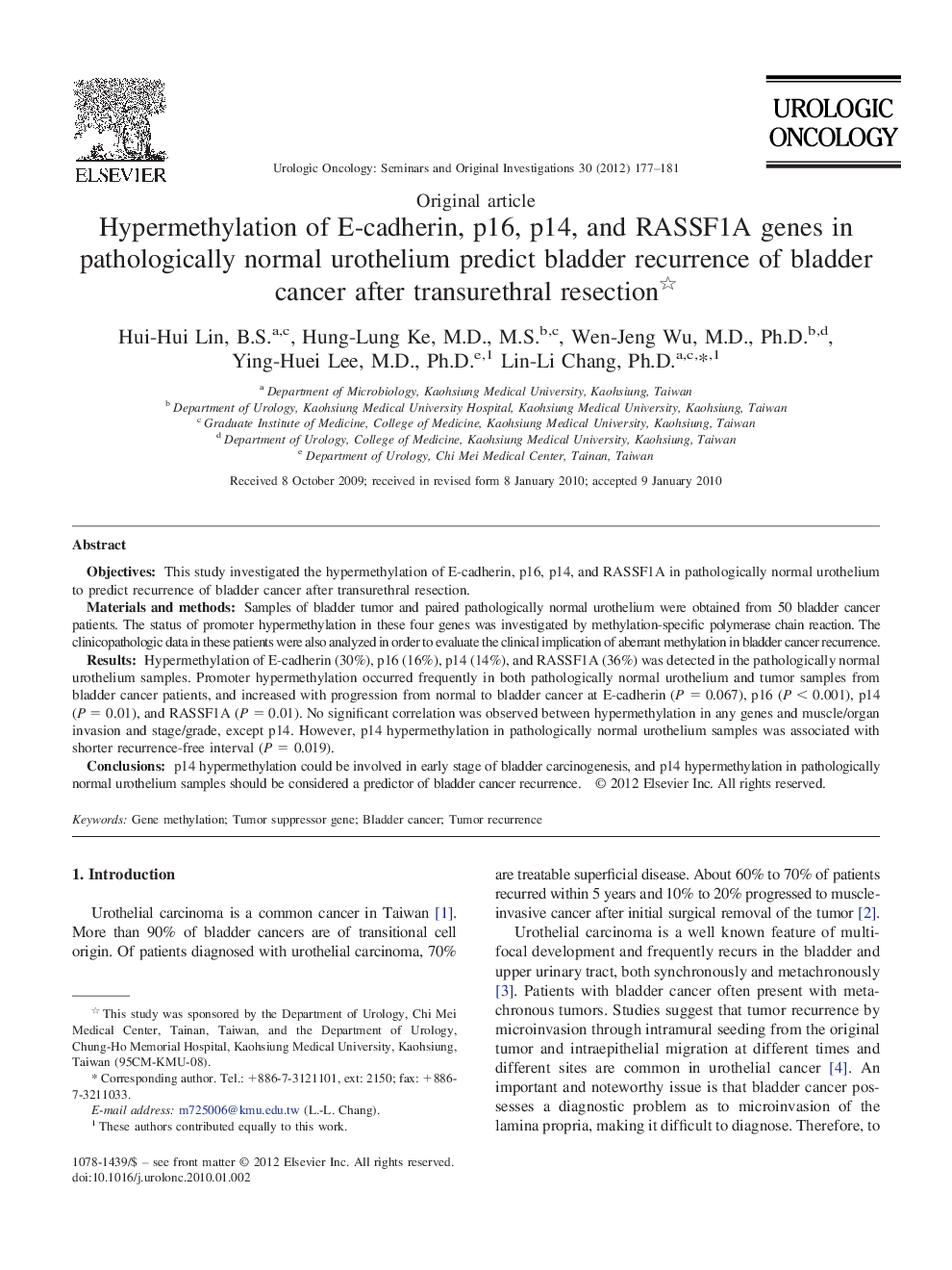| Article ID | Journal | Published Year | Pages | File Type |
|---|---|---|---|---|
| 4000385 | Urologic Oncology: Seminars and Original Investigations | 2012 | 5 Pages |
ObjectivesThis study investigated the hypermethylation of E-cadherin, p16, p14, and RASSF1A in pathologically normal urothelium to predict recurrence of bladder cancer after transurethral resection.Materials and methodsSamples of bladder tumor and paired pathologically normal urothelium were obtained from 50 bladder cancer patients. The status of promoter hypermethylation in these four genes was investigated by methylation-specific polymerase chain reaction. The clinicopathologic data in these patients were also analyzed in order to evaluate the clinical implication of aberrant methylation in bladder cancer recurrence.ResultsHypermethylation of E-cadherin (30%), p16 (16%), p14 (14%), and RASSF1A (36%) was detected in the pathologically normal urothelium samples. Promoter hypermethylation occurred frequently in both pathologically normal urothelium and tumor samples from bladder cancer patients, and increased with progression from normal to bladder cancer at E-cadherin (P = 0.067), p16 (P < 0.001), p14 (P = 0.01), and RASSF1A (P = 0.01). No significant correlation was observed between hypermethylation in any genes and muscle/organ invasion and stage/grade, except p14. However, p14 hypermethylation in pathologically normal urothelium samples was associated with shorter recurrence-free interval (P = 0.019).Conclusionsp14 hypermethylation could be involved in early stage of bladder carcinogenesis, and p14 hypermethylation in pathologically normal urothelium samples should be considered a predictor of bladder cancer recurrence.
